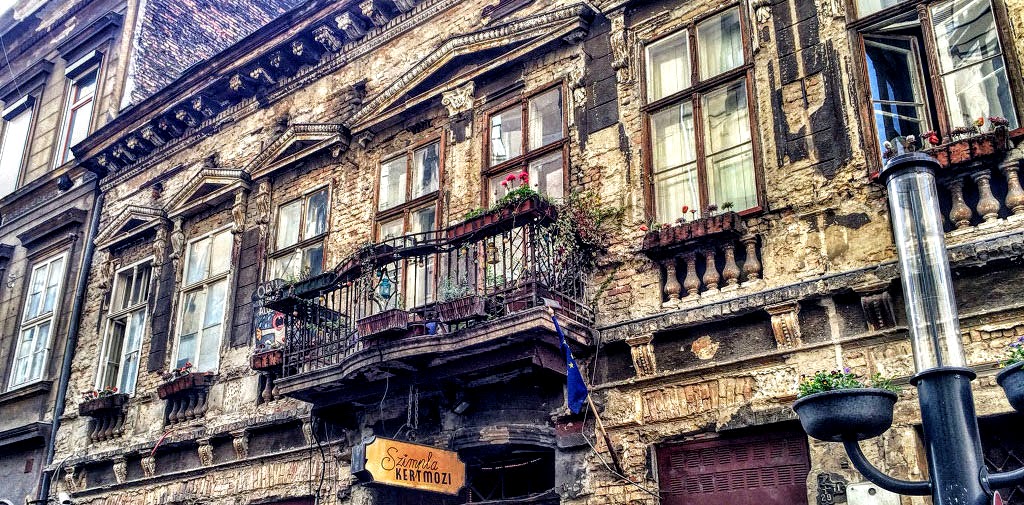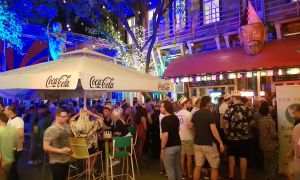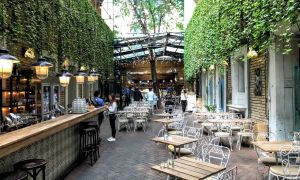What’s something unique about contemporary Budapest? The answer, without a doubt, is ruin bars. These unusual drinking joints situated inside the neglected pre-war buildings of the old Jewish Quarter have taken Budapest by storm. Know before you go that ruin bars have become so popular that mainly tourists visit them these days. If you're looking for more locals, try these bars.
If you've spent at least five minutes researching Budapest, you must have come across Szimpla Kert, Budapest's iconic ruin bar. Likely you're also familiar with the ruin bar (romkocsma) concept: makeshift bars inside dilapidated pre-war buildings, many in the Jewish Quarter, furnished with clearance sales furniture and exuding an idiosyncratic atmosphere.
Szimpla Kert, which pioneered the genre, is no longer the offbeat bar it was when it opened in 2004 – you'll likely have to navigate through camera-wielding tourists to approach the bar – but it's still worth a visit for the experience (prices have remained relatively reasonable). If daytime activities are more your speed, come for the Sunday morning farmers' market, taking place between 9 a.m. and 3 p.m. There's a still-functional mikveh, Jewish ritual bath, right next to Szimpla (#16). It's run by the local Orthodox community and serves as a reminder of the neighborhood's Jewish past.







